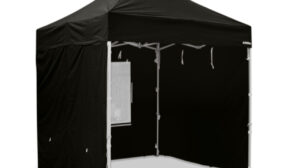If you’ve been following me on Instagram these past few weeks you’re undoubtedly aware of our recent family vacation in Mexico celebrating my 40th birthday. I can’t believe I’m 40. I sit back and think about what 40 meant to me when I was 20, and 30. It certainly meant someone quite different than who I am today, which makes me happy (because, by the way, 40 is the new 30!)
 Still, it feels as though I went to sleep one night in my twenties and woke up suddenly as a 40-year-old with a husband, three kids, and a mortgage. How did that happen? Of course, nothing happens overnight but I know we all can relate to the feeling I had that, it seems like I blinked and I’m 40!
Still, it feels as though I went to sleep one night in my twenties and woke up suddenly as a 40-year-old with a husband, three kids, and a mortgage. How did that happen? Of course, nothing happens overnight but I know we all can relate to the feeling I had that, it seems like I blinked and I’m 40!
It’s understandable that, turning a milestone-age makes one do a lot of reflection and make some decision about their life going forward – hello bikini bod and new goals!
My husband and I have been talking about retirement here and there, deciding what we’ll do that that time, where we’ll live, and what our financial goals are as an income in retirement. It’s a lot to think about, no doubt, but if we wait we’ll wake up one day and be retired!
RRSP’s are an important part of those discussions. He’s in a career with a pension waiting at retirement, but wonders how much he should be contributing to an RRSP outside of that. I’m self-employed and know that my retirement income is up to me, which puts a lot of pressure on me to ensure I make the right choices.
Experts agree on two fundamental things when thinking about investing; Canadians should seek the advice of a financial advisor and RRSP’s are not something that should only be thought about in the first 60 days of the year when it’s top of mind. With that sage advice in my pocket, I recently spoke to Dave Ablett, Director, Tax and Estate Planning at Investors Group to help answer some questions I had about RRSP’s. I think you, too, will find this information helpful.
1. Why should I invest in an RRSP, with three kids, activities, and a mortgage to pay?
Creating retirement assets is extremely important, especially for those individuals who are not enrolled in a company pension plan. For many Canadians, the Canada Pension Plan and Old Age Security benefits can replace only a small portion of your pre-retirement earnings. Depending upon a person’s income level, the RRSP deduction can produce a significant tax refund, which can be used to contribute to a TFSA, to an RESP for your children’s education, or used to pay down a mortgage.
2. What is the simplest way to make your RRSP investment work harder for you?
By far, making regular pre-authorized contributions during the year, as opposed to a lump sum contribution at the end of the year.
3. There are so many options under the RRSP umbrella, what is the best one to utilize? Savings Bond? GIC?
The choice of investments for the RRSP depends on the person’s age and risk tolerance. Historically, equities have out-performed debt investments (such as bonds), even though the returns from equities are more volatile than with respect to debt instruments. A younger person is able to assume more investment volatility than someone who is close to retirement. Keep in mind, that in the current low-interest rate environment, the returns from GICs and CSBs (Canada Savings Bonds) are quite low.
4. Are there any cases where an RRSP isn’t a good idea?
Yes. If there is a strong possibility that the person’s marginal tax rate will be higher during their retirement years than in the pre-retirement years, the person should focus on maximizing the TFSA contributions rather than contributing to RRSPs. Also, if the retirement income generated by RRSP contributions would affect the income-tested government benefits, contributing to the RRSP may not be appropriate.
5. What common mistakes do people make with their RRSPs?
Not taking full advantage of the RRSP contribution room available; not understanding the attribution rules for Spousal RRSPs; and not understanding the Home Buyers Plan.
6. If you only have a little to invest, is an RRSP worth it?
Yes, because of the tax deduction available and the tax deferral of the RRSP income.
7. Once you’re ready for retirement, how do you withdraw your investments in a way that minimizes tax?
Withdrawals from RRSPs and RRIFs (Registered Retirement Income Fund) are taxed at the person’s marginal tax rate. In order to minimize tax, the client could withdraw only the required minimum annual amount from the RRIF (example: the minimum annual amount for a 65 year old person is 4% of the value of the RRIF).
This discussion was hugely helpful for both my husband and I to get a better understanding of RRSPs and how we can make them work for us. The ‘biggest mistakes’ answer is what stood out the most to me. We haven’t, if I’m being honest, taken full advantage of the contribution room available each year. It’s much easier, and comfortable, to contribute a set-amount each year and leave some savings leftover for vacations and big purchases. I really think I need to reevaluate that thinking and perhaps determine if I can set aside more each year, since I have the room to do so. Undoubtedly it will pay off at retirement, and I really should give that gift to my fabulous-retired-self!
Investors Group’s experts suggest the need for having a comprehensive plan that considers the different stages of your life – and they share a number of great tips, including a list of of Top 10 RRSP Tips with strategies to get the most out of your investment!
If you have questions about RRSPs and retirement savings, speak to a Financial Advisor who can gain information from you and assess your own unique situation, rather than go on the advice of what your parents are doing, or what your best friend thinks is the way to go. It makes sense to ask an expert to point you in the right direction. I hope that direction leads to a beach in retirement for you too!







I am glad I started really young with my RRSP’s because I actually found it easier to save then! Now I concentrate on trying to get those TFSA’s filled.
I am glad that I have already started investing RRSP’s. I hear of to many stories where people have wished that they started early!
Taking great care to save for retirement is a must. I know too many people who are only existing on old age security pension . Having seen that first hand I’m quite careful to plan for my own retirement.
Retirement is off for me because my disabilities disqualify me but this is a great post
Good advice, thanks.
Yes, and if you have kids you’ll blink and have to pay for university and then weddings! We have lots to save for!
This is one topic that I am always thinking about…make contributions on a yearly basis, but will have to look at pre-authorized contributions throughout the year.
I’m so very close to the age where I should start thinking about retirement but alas, will have to work quite a few more years. No pension plan at work, fairly low salary, raising my daughter with no support from my ex-husband, and living in Mississauga where rent prices were quite high. I didn’t have any extra money to put into RRSP’s. I envy my brothers who were able to retire at the age of 55 thanks to their pension. I’ll probably die on the job here.
We were so careful while we were younger and are now reaping the rewards, I retired at 55 and hubby is looking at retiring within the next couple of years!
Thank you for this Q&A – very important topic to discuss with our partner and financial advisor!
Retirement assets are very important,the sooner you start your RRSP the better prepared you will be.
Saving for the future is so important. I’m so glad I started young . By the way you don’t look anywhere near 40 !
Retirement planning is extremely important and starting early with RRSP investments is the key.
Wow…. that’s actually a really fun thought! I totally want to plan for my retirement. It’s something to look forward to!
We have stared putting money into RRSPs. It’s hard when you’re also trying to aggressively pay off the mortgage but I know that all of these responsible decisions will pay off in the long run.
Good tips, I definitely don’t think we are doing enough to plan for retirement. We need to step that up!
I am an independent contractor so investing in an RRSP is key for me.
The day will come sooner than expected and one needs to be prepared.
i haven’t even thought of rrsps but i know i need to look into it soon, time flies
It’s good to start early, you never know what the future will bring. I like RRSP and TFSA.
Sounds like a plan
It’s good to start saving early.
This is one of the first things I did once I started making enough money that I could save some.
Those RRSP’s are important! Make your money work for you!
I think the day will come sooner than expected for some and for others it will not come when expected if they are not prepared! It is never too early!
Thanks for the reminder to focus on retirement savings. I read somewhere that the best financial gift you can give your children is to plan for your retirement so your children don’t have to worry about supporting you in your old age.
I have money automatically set aside into my RRSP. I need to work with my advisor and modify my RRSP plans so I maximize my contributions
RRSP’s are a really huge plus in retirement especially if you have no pension plan through work, then they are a must. Start saving early for sure. Great advise!
Yes, investing all year round is important and actually easier to do.
We have been contributing for years, since we do not have any work pension plan.